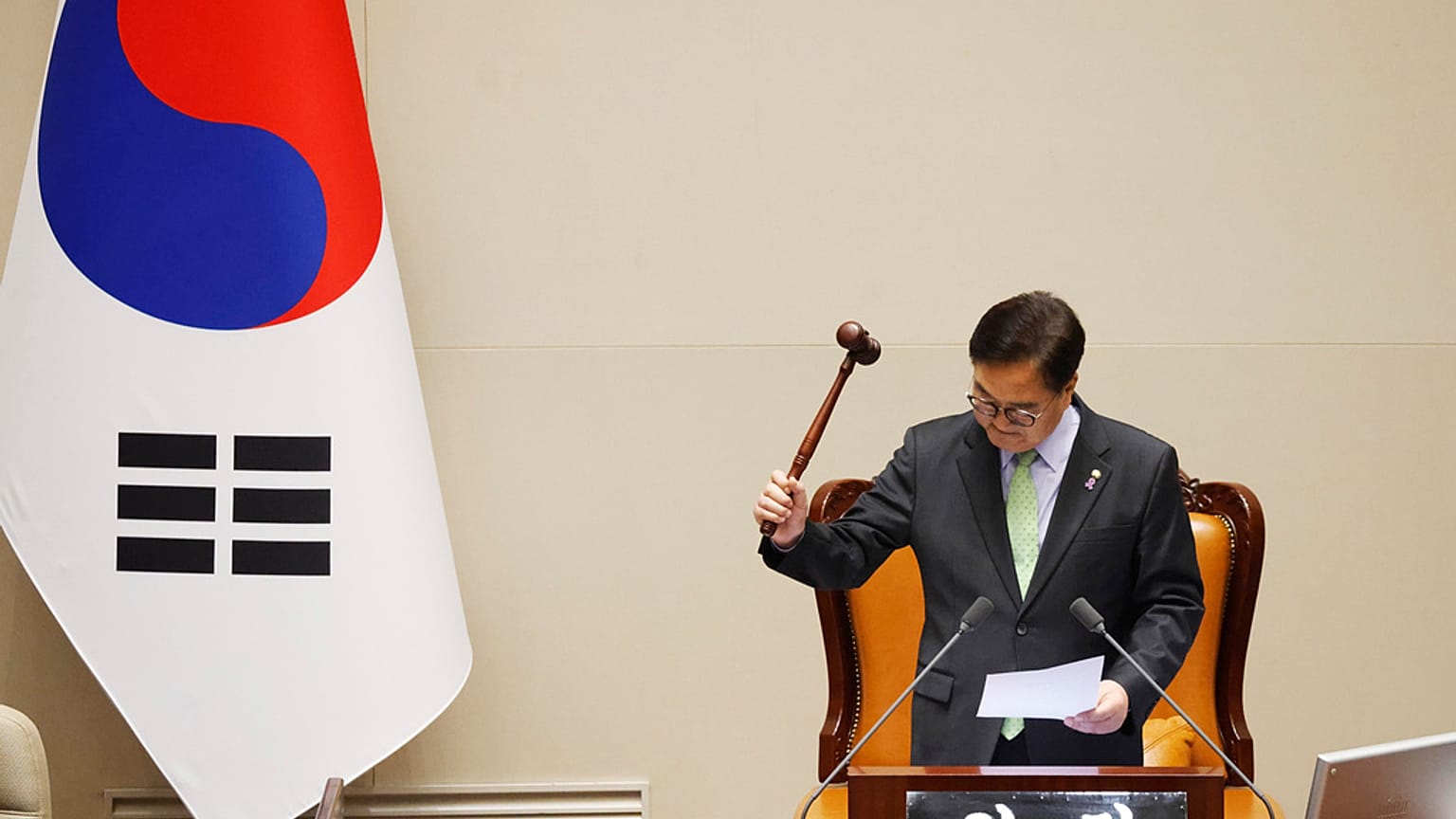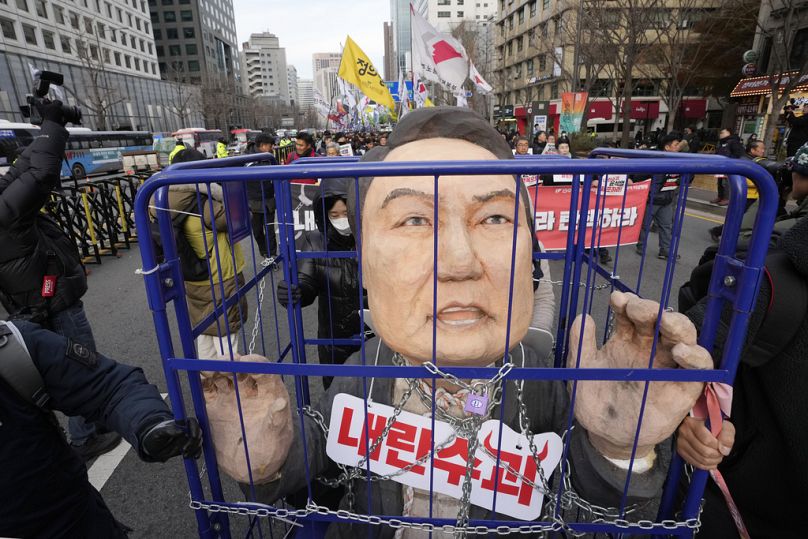If Yoon is impeached, his powers will be suspended until the Constitutional Court decides whether to remove him from office and if he is removed, an election to replace him must be held within 60 days.
Lawmakers in South Korea will hold a second vote in parliament on Saturday to impeach President Yoon Suk-yeol, following his brief attempt to impose martial law, which sparked strong criticism and led to a political crisis.
The vote will require support from 200 of the National Assembly’s 300 members to pass, and only then the matter will proceed to the Constitutional Court.
During this time, Yoon, who is under criminal investigation for alleged treason and has been banned from leaving the country, will be placed on leave until the court delivers its verdict, according to local reports.
Refusing to resign, the embattled president in a televised speech on Thursday declared that he would "fight to the end" and defend his decision to seize control of the country.
Although Yoon's decision was rescinded just six hours after it was made public, calls for his resignation have grown in the opposition and even among his party, creating an unprecedented political crisis.
He has issued an apology over the martial law decree, saying he won’t shirk legal or political responsibility for the declaration.
“The declaration of this martial law was made out of my desperation. However, in the course of its implementation, it caused anxiety and inconveniences to the public. I feel very sorry over that and truly apologise to the people who must have been shocked a lot,” Yoon said last week Saturday.
Around 300 armed troops tried to surround parliament and raid the electoral commission after receiving Yoon's decree on 3 December, though things calmed six hours later when the National Assembly unanimously voted the martial law down, forcing Yoon to lift it.
South Korean law only allows the president to declare martial law during wartime or similar emergencies.
Yoon has said he would leave it to his conservative People Power Party (PPP) to chart a course through the country’s political turmoil, “including matters related to my term in office,” but some members of his party have opposed him and called his dramatic move "unconstitutional."
The main opposition, the Democratic Party, and five other small opposition parties, which filed the motion, have 192 seats combined. But only three lawmakers from the PPP participated in the first impeachment vote, which was scrapped without ballot counting since the number of votes didn’t reach 200.
National Assembly Speaker Woo Won Shik called the result “very regrettable” and an embarrassing moment for the country’s democracy.
Most of the lawmakers from Yoon’s governing People Power Party had boycotted that vote, despite party chair Han Dong-hun being a critic of Yoon.
During a party meeting, Dong-hun called Yoon’s statement on Thursday “a confession of rebellion.”
Yoon's power struggle with parliament
If Yoon is impeached this Saturday, his powers will be suspended until the Constitutional Court decides whether to remove him from office. If he is removed, an election to replace him must take place within 60 days.
Since taking office in 2022, Yoon has struggled to push his agenda through an opposition-controlled parliament and grappled with low approval ratings amid scandals involving himself and his wife.
In his martial law announcement on 3 December, the South Korean leader called parliament a “den of criminals” bogging down state affairs and vowed to eliminate “shameless North Korea followers and anti-state forces.”
The declaration of martial law was the first of its kind in the country in more than 40 years. The turmoil has paralysed South Korean politics and sparked alarm among key diplomatic partners like the US and Japan.
















